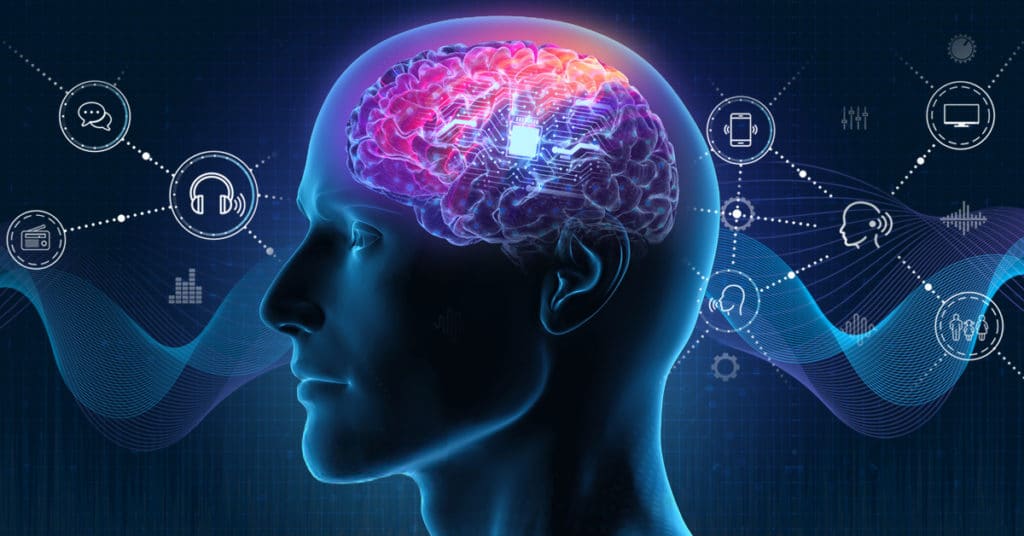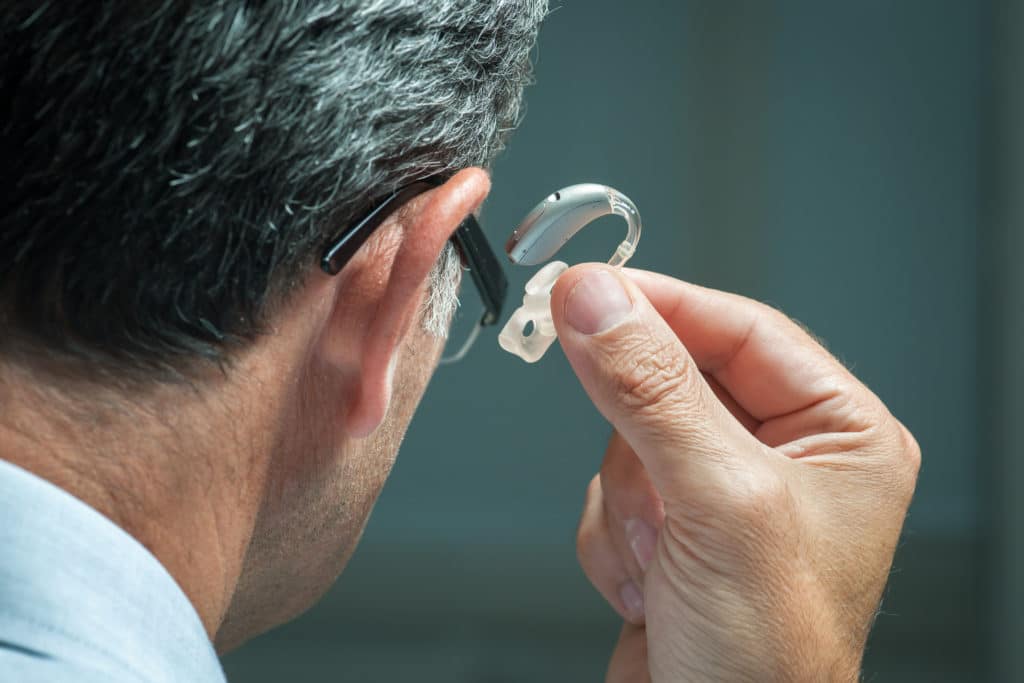
As we enter November, the time of year when the holidays are right around the corner. We began making plans to gather with friends and family. It’s also a necessary time to remember that November is Alzheimer’s Awareness Month.
Alzheimer’s disease is a progressive condition where dementia symptoms gradually worsen over the years. Few recognize factors that can contribute to the advancement of dementia — one of which is untreated hearing loss.
Hearing Loss and Alzheimer’s
According to the National Institutes of Health, nearly one in three people between the ages of 65 and 74 in the US have some form of hearing loss. In 2016 a study from the American Journal of Public Health discovered almost two-thirds of adults ages 70 or older suffer from hearing impairment that may affect everyday activities and conversation.
Hearing loss is correlated with just our ears; however, our brains play just as large of a roll in how we hear as the ears themselves. Without cognitive processing, our mind does almost immediately; we wouldn’t be able to determine the meaning and source of the sounds our ears hear.
How Does Hearing Loss Occur
As our hearing develops in infancy and childhood, our brain creates neural pathways precisely adjusted to processing everyday sounds and determining where they’re coming from. When the inner ear detects sound waves, those responses transform into electrical signals received by the brain.
Typically when hearing loss begins, it’s due to the cumulative loss of “hair cells” within the inner ear. These cells are delicate sensory nerves responsible for picking up sound waves through the air. These tiny cells are susceptible, and because of this, they can be easily damaged. Our bodies can not repair or replace the cells, leading to hearing loss throughout our lifetime.
How’s it Connected
People develop dementia for a variety of reasons, including vascular, neurogenerative, and neuroimmune conditions. When it comes to hearing loss, less functioning hair cells means we receive less sound wave information sent to the brain.
The area of your brain in charge of hearing and processing auditory data may begin to operate differently when the hearing part goes away (or becomes strained), causing changes to how your brain is structured, which could be related to the effects of Alzheimer’s. Furthermore, hearing loss is one of the nine potentially modifiable risk factors contributing to nearly 35% of dementia cases, with hearing loss being the largest contributor at 9%.
This means that 9% of dementia cases could be eliminated theoretically if all hearing loss were non-existent, and there were no other contributing factors.

What the numbers show
A hearing loss and cognitive decline in older adults by Lin FR of JAMA study showed mild hearing loss is associated with a two-fold higher risk for dementia. In contrast, severe hearing loss is related to five-times greater risk over ten years. Various studies have found that the degree of cognitive decay accelerates in dementia patients with hearing loss. The study also found that participants with hearing loss experience mental decline rates that were 30-50% faster than those with normal hearing.

What’s Next?
It’s important to note that having hearing loss doesn’t mean you or your loved one will develop Alzheimer’s. Many have trouble hearing in their senior years and manage to live out those years without experiencing dementia. But the link suggests that if we can do something to minimize hearing loss, there’s a decent chance that we can also reduce the possibility of getting Alzheimer’s or its severity if someone does get it.
There is good news; however, treating hearing loss helps overall cognitive performance and can help keep hearing loss from contributing to dementia. This is why, as you get older, you must get your hearing checked annually.
Treating hearing loss with hearing aids or cochlear implants can significantly improve your quality of life and help you stay connected to the people and activities you love most. In a French study, older adults treating their hearing loss showed an astounding 80% increase in their cognitive functioning. For people facing dementia alongside hearing loss, treating the hearing loss can help soften the impact it has on cognitive decline.
At Salem Audiology Clinic, for over 35 years, we’ve been helping people overcome hearing loss in the Willamette Valley since 1982. From comprehensive hearing testing to individualized care, Our commitment is to help you receive lifelong healthy hearing.
Call us today at (971)701-6322
